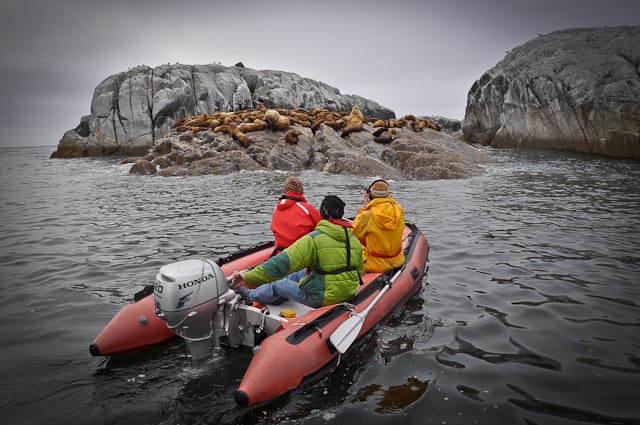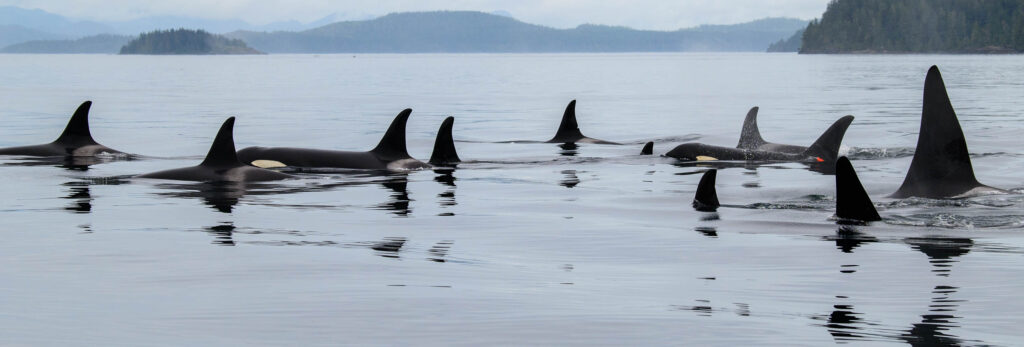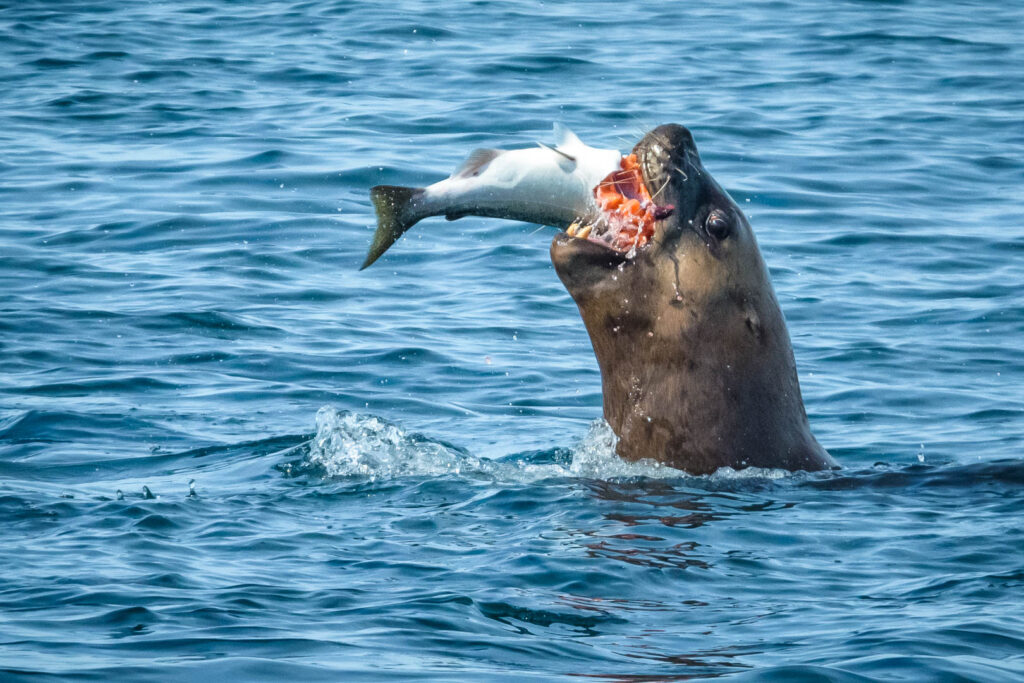
Director, Marine Mammal Research Unit
Professor, Institute for the Oceans and Fisheries
Tel: 604.822.8182
Fax: 604.822.8180
E-mail: a.trites@oceans.ubc.ca
Education: BSc Mathematics & Ecology (McGill University); MSc Zoology (UBC); PhD Zoology (UBC)
Research Interests: biology of marine mammals, population dynamics, bioenergetics, fisheries, data analysis
Education: BSc Mathematics & Ecology (McGill University); MSc Zoology (UBC); PhD Zoology (UBC)
Courses Taught: Fish 506 – Critical Issues in Fisheries; Mar. Sci. 455 – Biology of Marine Mammals; Scie 300 – Communicating Science; Biol 140 – Laboratory Investigations in Life Science
Professional Credentials:
| Professor | UBC Institute for the Oceans and Fisheries |
| Director | UBC Marine Mammal Research Unit |
| Associate Member | UBC Department of Zoology |
| Research Associate | Vancouver Aquarium Marine Science Centre |
| Governors’ Council | Ocean Wise |
| Member | PICES Advisory Panel on Marine Birds and Mammals |
| Member | Marine Mammal Specialist Group for the Committee on the Status of Endangered Wildlife in Canada (COSEWIC) |
Research
My research is primarily focussed on pinnipeds (Steller sea lions, northern fur seals, and harbor seals) and involves captive studies, field studies and simulation models that range from single species to whole ecosystems. My research program is designed to further the conservation and understanding of marine mammals, and resolve conflicts between people and marine mammals. I oversee a research program that includes researchers, students, technicians and support staff. The training of students, and the collaboration between researchers specializing in other disciplines (such as nutrition, ecology, physiology and oceanography) is central to the success of my research program.
Current and Recent Projects:
Steller sea lions

The disappearance of Steller sea lions from the Gulf of Alaska and Aleutian Islands since the mid 1970s is a major ecological mystery. We have tried to test all of the major hypotheses. Predation by killer whales, competition with fisheries, and reproductive failure associated with consuming large amounts of low energy fish (e.g., pollock or Pacific cod) have not yet been refuted. We continue to test these three leading hypotheses using a combination of field studies, captive experiments and retrospective modelling and data analysis.
Northern fur seals
The cause of the Steller sea lion decline may be linked to the dramatic fall of northern fur seals on the Pribilof Islands. In addition to studying a captive colony of fur seals at the Vancouver Aquarium, we have conducted research on Bogoslof Island and the Pribilof Islands to assess whether fur seals are experiencing food shortages that could be caused by fishing or natural changes in the ecosystem. The studies have included fine scale foraging, dietary differences, and changes in body size.
Harbour seals

Harbour seals have been implicated in the decline of sockeye, chinook and coho salmon in British Columbia. Harbour seals in the Strait of Georgia have recovered from culling and are the highest density population of harbour seals found anywhere in the world. Some of our research is focused on diets and foraging behavior of seals in the Strait of Georgia and the effects that predation are having on the lack of recovery of commercially important fish species. Research involves a combination of field and mathematical modelling studies.
Killer whales

Models, data analysis, and field studies are underway to determine whether the decline of southern resident killer whales is due to a lack of Chinook salmon in the Salish Sea. It involves using biologgers to assess the movements of individual killer whales, and using hydroacoustics to determine the abundance and distribution of prey. Other research is assessing the importance of the Salish Sea to transient (Bigg’s) killer whales that prey on seals, sea lions and small cetaceans.

Food consumption of marine mammals
“How much food do marine mammals consume?” is a question we are attempting to answer using generalized models of food consumption we have derived for all species of marine mammals according to whether they have low, medium or high costs of living. The models are being applied to the North Pacific for comparison with commercial fish catches.
Graduate Student Opportunities
I generally accept one to two students per year through the Institute for the Oceans and Fisheries, Department of Zoology, or Institute for Resources, Environment and Sustainability. Current thesis topics are described in the graduate student homepages, and completed theses are listed below. Research topics have spanned the fields of animal behavior, physiology, molecular ecology, biomechanics, ecosystem modelling, habitat modelling, population dynamics, and predator-prey interactions.
![]()
![]()
INSTITUTE FOR THE OCEANS and FISHERIES
PUBLICATIONS BY ANDREW W. TRITES
[webref_pretty author=”trites”]

